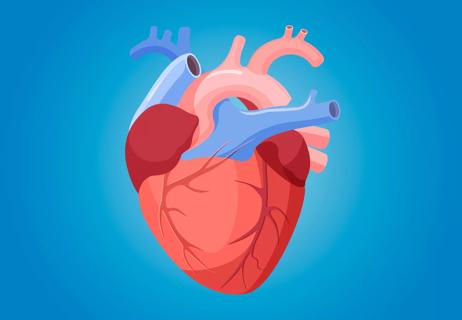5 tips to prepare for your trip

Are you planning a trip or vacation? If you have heart disease, it’s especially important to do some advance planning.
Advertisement
Cleveland Clinic is a non-profit academic medical center. Advertising on our site helps support our mission. We do not endorse non-Cleveland Clinic products or services. Policy
“By preparing well, you can focus on enjoying yourself,” says Benico Barzilai, MD, Head of Clinical Cardiology at Cleveland Clinic.
Also, he says it’s important not to ignore symptoms, whether at home or on the road. “Be smart. Be sure to seek emergency room treatment should you have any chest pain, signs of a heart attack, or other symptoms of heart disease.”
Here are 5 important tips to get you ready for your trip:
Depending on your condition, it may make sense to visit your doctor before your trip. Definitely, do so if you are having any new symptoms or if you’ve had a recent procedure or hospitalization to be sure that traveling is safe for you.
Some information you may need before leaving includes:
Advertisement
Check your insurance coverage and make sure it will cover you where you are traveling. Consider purchasing medical evacuation insurance if your health insurance doesn’t cover medical evacuation.
Make sure you will have enough medication to get you through the entire trip (if not, refill your prescription). You want to bring enough medication to cover you for a few extra days in case you are delayed for any reason.
Other tips for your medication include:
When traveling by plane, use a suitcase and carry-on that has wheels, or get help with your luggage from a porter or fellow travel mate. Also, request an aisle seat so you can easily get up and walk around.
If you travel a long distance, there’s an increased risk of blood clots (venous thrombosis). Slower blood circulation when you are sitting for many hours and lower oxygen levels in the plane cabin are what drive up the risk.
Here are tips to help with this:
Do you have a pacemaker or implanted cardiac defibrillator (ICD)? If so, try to request special security clearance with a hand search at the airport.
If a handheld device is used to clear a person through security checkpoints, ask the examiner to hold the handheld device over the ICD for no more than a few seconds.
Traveling abroad? Bring all contact numbers and web site addresses for pacemaker and ICD manufacturers.
While the risk of heart attack or other heart problems is small, the Federal Aviation Administration requires passenger-carrying aircraft to keep an automated external defibrillator.
Advertisement
If you’ll be walking a lot on your getaway, start a walking routine in the weeks before your trip. The day of your trip, make sure you get plenty of sleep. Also, wear the most comfortable travel shoes you can find.
If you are on a special diet at home, follow your diet (as much as possible) on your trip. If you have heart failure, eating too much salt can bring on symptoms. To avoid salty snacks on the plane and during the trip, bring low-salt snacks with you.
Finally, if you are on vacation and have any heart symptoms, don’t be a hero. “Don’t be afraid to get checked for fear of spoiling your family vacation,” says Dr. Barzilai.
Advertisement
Learn more about our editorial process.
Advertisement

Knowing what you can do to prevent or manage heart disease is half the battle

Unlock the secret of your body’s hardest-working organ

What you should know about sugar and heart disease

What you should know about genetics, cholesterol, stenting and more

Women are particularly vulnerable to the effects of stress on the heart

Why you should soak with caution if you have a heart condition

Type 2 diabetes isn’t inevitable with these dietary changes

Applying a hot or cold compress can help with pain